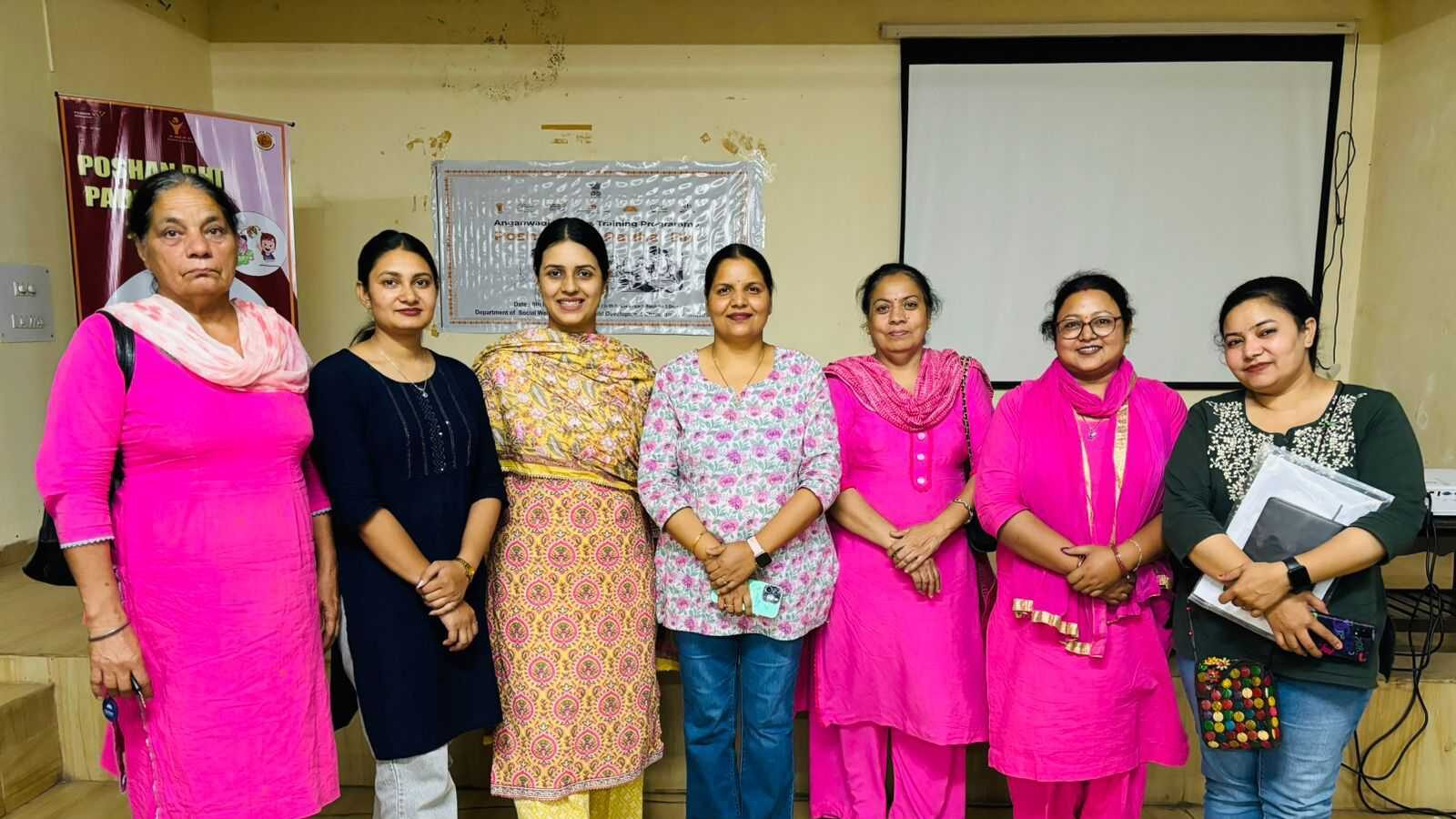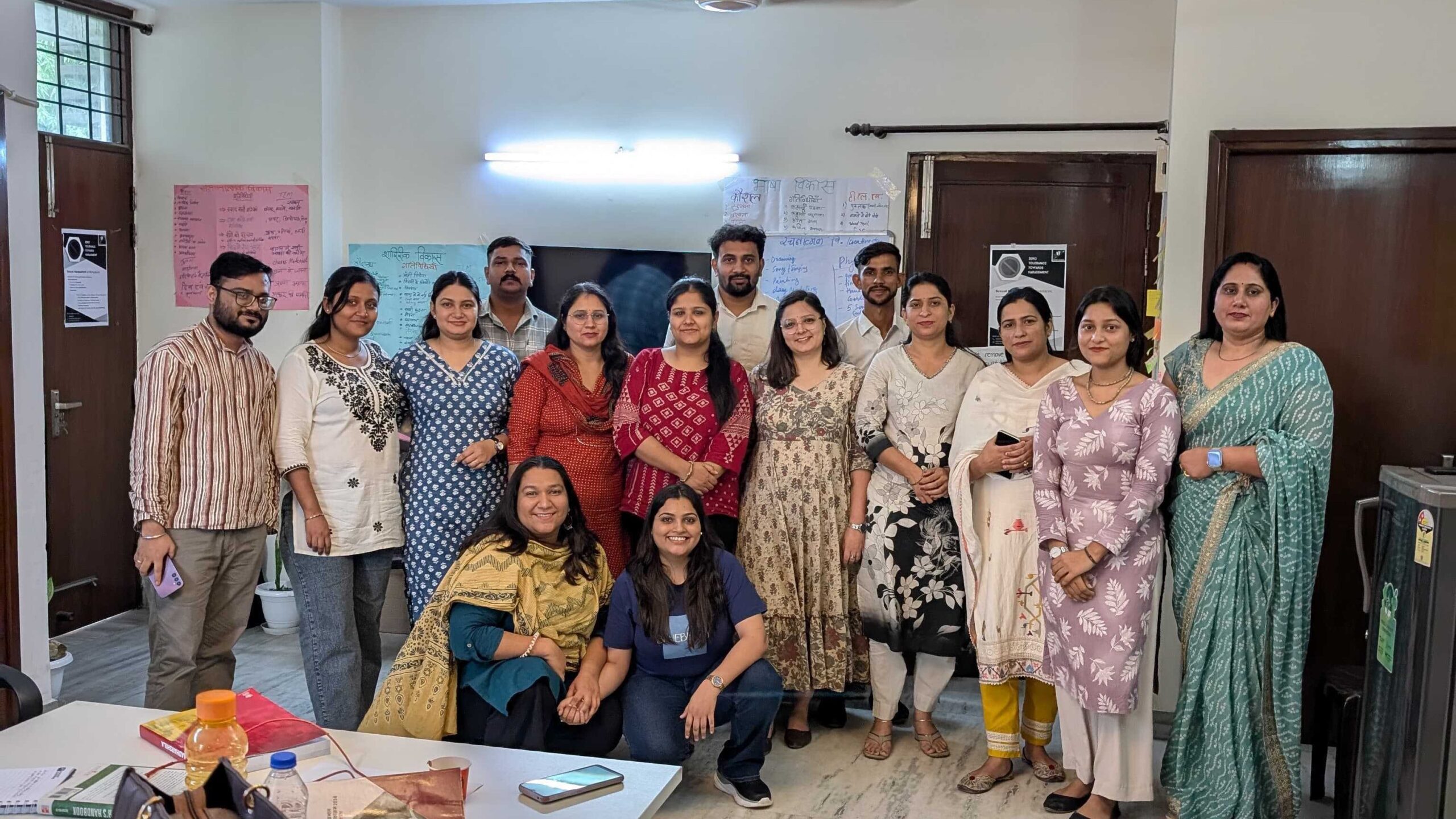– By Ann Manoj, Communications Associate
The roots of our work often lie in personal stories, the lived experiences that quietly shape our choices, perspectives, and commitments. For Ms Anjali, Program Manager at Rocket Learning, the Anganwadi system is not just a professional focus but a profoundly personal journey. Her mother has been an Anganwadi worker since 2006 and as a result, she grew up immersed in the rhythms of early childhood care and education.
In this edition of our Drivers of ECCE series, Anjali reflects on her childhood memories, the lessons learned from her mother’s work, and how these experiences continue to shape her vision for early learning in India.


Q. Could you share a bit about your childhood and your earliest memories of growing up around an Anganwadi centre?
Anjali: My parents have always worked, and my mother has been part of the Anganwadi system since 2006. After school, my younger brother and I often spent time at her centre until closing hours. We grew up around the children there, helping, playing, and observing. My mother has always been very friendly, so the Anganwadi never felt like a formal or distant place. It was warm and welcoming, almost like a second home.
Some of my strongest memories are of Poshan Maah celebrations, staying up late to decorate, make posters, or create rangolis for the next day. I also remember how my mother comforted new children by drawing smiley faces on their thumbs and saying, “this is your mother, this is your father.” It was such a simple gesture, but it made children feel safe instantly.
Q. How did your mother’s work influence the way you think about childhood care and learning?
Anjali: Watching her taught me that care and learning go hand in hand. Children often cried or struggled to adjust when they first came in, but my mother was endlessly patient. She knew how to comfort them, how to make even the shyest child feel included. She corrected the children gently when they did something wrong, never harshly, always with calmness and love.
At the same time, I saw the load she carried, from preparing Take-Home Ration (THR) distributions to managing endless reports and paperwork, often bringing work home. It taught me resilience and made me respect the invisible effort that keeps the system running.
Q. What makes you proud of your mother’s contribution as an Anganwadi worker?
Anjali: Everywhere we go, people know her. Supervisors and workers from other areas recognise her, and when they meet me, they say, “Oh, you’re Anjana’s daughter, she is so active.” That fills me with pride.
In Manimajra, Chandigarh, she has taken responsibility for most of the events and administrative tasks. People trust her and look up to her. Her work is not just a job; it is a form of service that has earned her immense respect.
Q. Do you feel that being so close to the system gave you a different perspective on ECCE compared to others?
Anjali: Definitely. For example, in training, people might see TLMs in a video and assume they’re simple to make. But I know how much effort and time go into creating them, because I’ve helped my mother with it. That practical experience stays with you, making later training easier to understand.
It has also shown me that ECCE is not abstract; it is hands-on, detailed, and deeply human work.
Q. What inspired you to join the ECCE ecosystem yourself, and what do you value most now?
Anjali: Initially, I didn’t know much beyond what I saw in the Anganwadi. But one thing I learned early from my mother was the importance of patience, knowing how to comfort a child with withdrawn anxiety, or how to engage a restless one.
Later, through Rocket Learning’s training and meetings, I realised how critical the 0–6 age group is. With 85% of brain development happening in those years, this stage cannot be ignored. That understanding inspired me to contribute. Today, I feel grateful that my journey has connected me to this mission in such a direct way.
Q. How has being the daughter of an Anganwadi worker shaped your own identity and work today?
Anjali: Wherever I go, people connect me with my mother. That sense of belonging gives me confidence. At Rocket Learning, the training and exposure I’ve received have built on those childhood experiences, helping me grow into my own identity in the sector. In many ways, it feels like a continuation of her legacy.
Q7. In your view, how do Anganwadi workers shape the future of children in their communities?
Anjali: They play a foundational role. Parents often tell us how children take home what they learn in the centre, whether it’s a song, a rhyme, or a hygiene habit. These small but powerful lessons shape children’s lives far beyond their early years. Anganwadi workers are building futures every day, often quietly and without recognition, but their impact is lifelong and far-reaching.